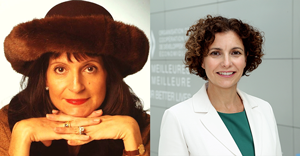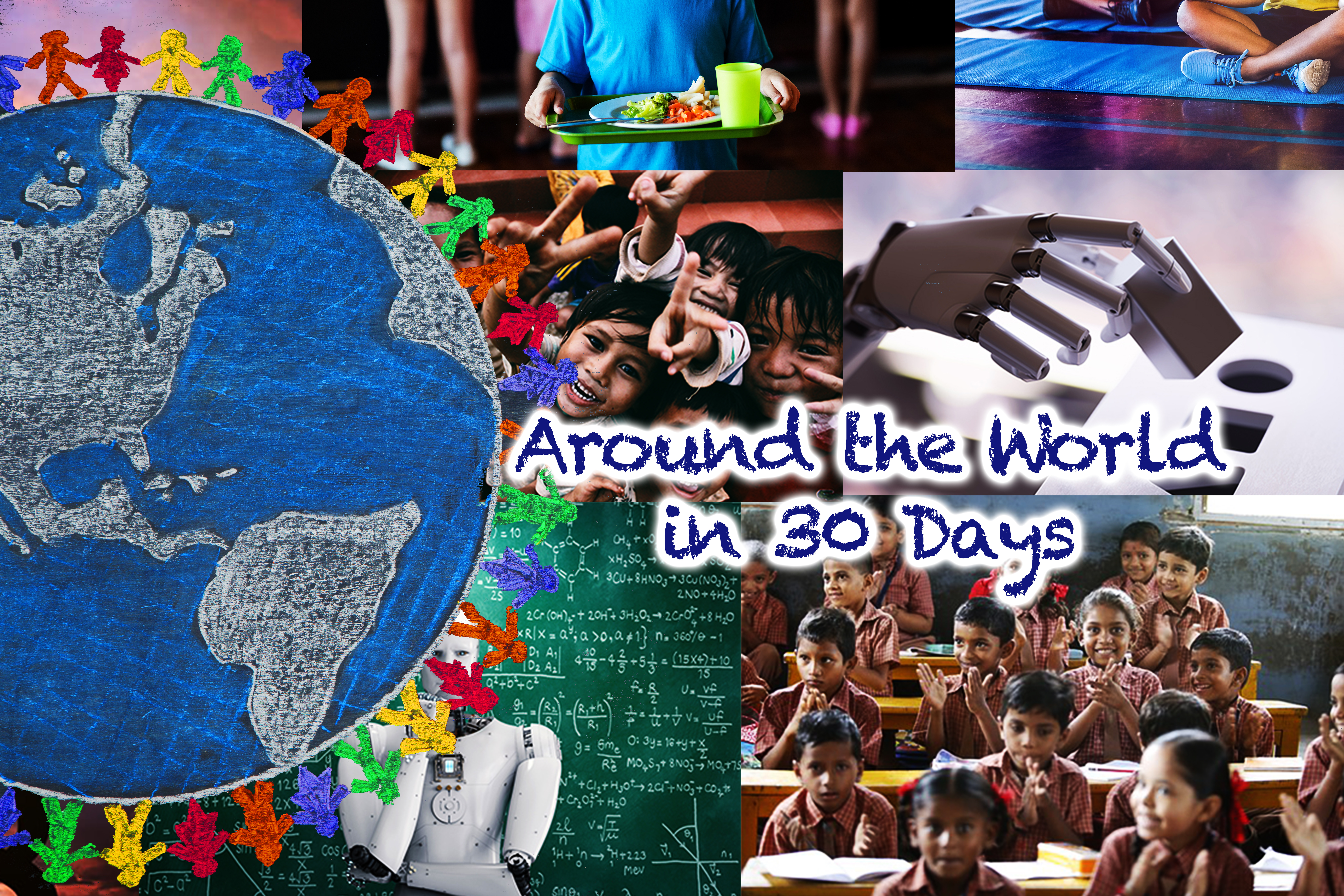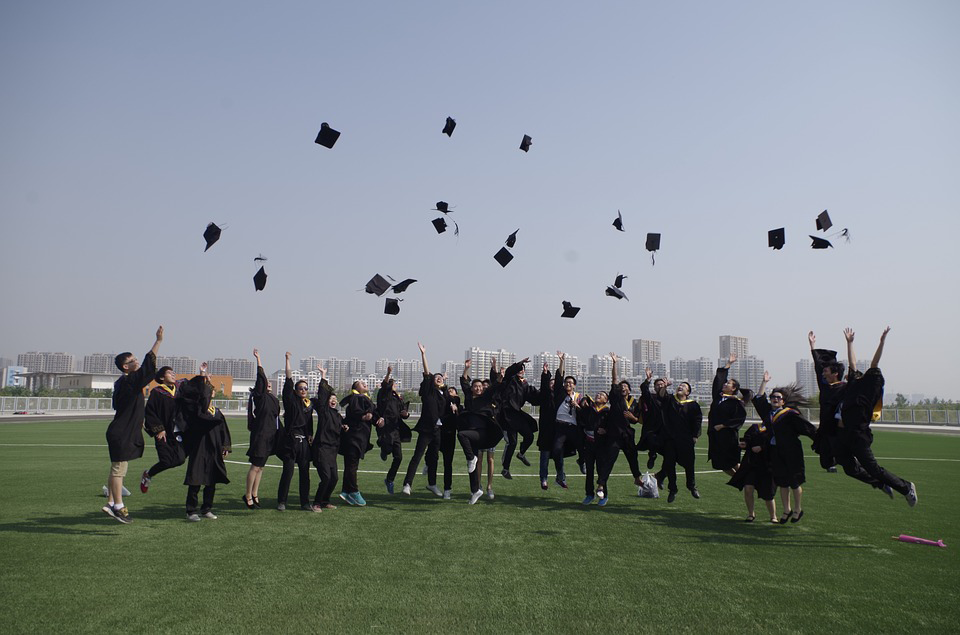“Globalization, the increasing diversity of our populations, the consolidation of the knowledge-based society, and the increase in inequalities, among other factors, are influencing education directly and indirectly.” — Beatriz Pont
How has globalization affected the approach of education systems to policy? What are international governments doing about the reforms needed? What are the main priorities and how can politics and people influence policy implementation?
Global education systems are being asked to develop young people’s “critical thinking, team working, collaboration, and creativity to be able to succeed in life and in the labor market,” says Dr. Beatriz Pont, Senior Education Policy Analyst at the OECD. However, implementing policy in the political context is complicated, “with many actors involved, including national, regional and local policy makers, school leaders, teachers, parents, students and others.”
So what are the most important lessons to be learned from the nations that are managing education reform well? The Global Search for Education is pleased to welcome Dr. Beatriz Pont to discuss Policy, Politics, People and the Impact of Globalization
Education policy making goes beyond content, encompassing policy, politics, and people. It is not a straight forward process, but dynamic, disorderly, very embedded in the political context and with many actors involved, including national, regional and local policy makers, school leaders, teachers, parents, students and others.” — Beatriz Pont
How has a globalized world impacted our prioritization of learning?
Globalization, the increasing diversity of our populations, the consolidation of the knowledge-based society, and the increase in inequalities, among other factors, are influencing education directly and indirectly. Education systems are asked to provide not only knowledge, but also to develop young people’s critical thinking, team working, collaboration, and creativity to be able to succeed in life and in the labor market. Greater investments are also required to support equity in education, to support youngsters from disadvantaged backgrounds and their schools, and ensure that they can have the same opportunities in this globalised environment
How are the most successful systems addressing the key challenges?
It has now become evident that high performing education systems are those that deliver on both equity and quality, and ensure that all children succeed in education irrespective of their background. While there is no unique approach, as education systems are highly contextual, there are some common features that research and country practice highlights: systems that prioritize all students’ learning, that invest in professionalism of their staff, including teachers and school leaders to develop schools as learning organizations, and that provide the right support for schools, in terms of data, information technology, networks and improvement strategies to deliver.
“Policy responses need to be specific to the challenges faced, adapted to the context, have internal and external coherence, and engage key stakeholders in the process to ensure they implement it later on.” — Beatriz Pont
Do you believe education policy should be created by a select group of people or should all the stakeholders participate? Why?
Education policy making goes beyond content, encompassing policy, politics, and people. It is not a straight forward process, but dynamic, disorderly, very embedded in the political context and with many actors involved, including national, regional and local policy makers, school leaders, teachers, parents, students and others. At some point they need to be involved in the process. This reality needs to be taken into consideration when developing and implementing policy as it can contribute to shape what really happens or doesn’t happen on the ground. Scholars have shown that often reforms may not reach the classroom because of a lack of focus on implementation of education policy or may not have lasting effects.
What do you believe are the most important lessons countries can learn from high-performing systems?
Education policy for school improvement has become a priority across OECD countries and beyond. Countries are embracing this new stage with much action around areas that are key for improvement such as schools and their curriculum, teachers, and disadvantaged students. But policies do not exist in a vacuum: they need to be taken into consideration in relation to their political and economic context, their educational environment, and surrounding policies, and to human agency. There are no ready-made solutions to be implemented, but policy responses need to be specific to the challenges faced, adapted to the context, have internal and external coherence, and engage key stakeholders in the process to ensure they implement it later on.
Dr. Beatriz Pont is Senior Education Policy Analyst at the OECD and has been working on education policy throughout her international career. The views expressed here are the author’s and do not represent those of the organization she works for. Pont’s work is discussed in the new book, Future Directions of Educational Change (edited by Helen Janc Malone, Santiago Rincón-Gallardo, and Kristin Kew; Routledge, 2018).
C. M. Rubin and Beatriz Pont
Join me and globally renowned thought leaders including Sir Michael Barber (UK), Dr. Michael Block (U.S.), Dr. Leon Botstein (U.S.), Professor Clay Christensen (U.S.), Dr. Linda Darling-Hammond (U.S.), Dr. MadhavChavan (India), Charles Fadel (U.S.), Professor Michael Fullan (Canada), Professor Howard Gardner (U.S.), Professor Andy Hargreaves (U.S.), Professor Yvonne Hellman (The Netherlands), Professor Kristin Helstad (Norway), Jean Hendrickson (U.S.), Professor Rose Hipkins (New Zealand), Professor Cornelia Hoogland (Canada), Honourable Jeff Johnson (Canada), Mme. Chantal Kaufmann (Belgium), Dr. EijaKauppinen (Finland), State Secretary TapioKosunen (Finland), Professor Dominique Lafontaine (Belgium), Professor Hugh Lauder (UK), Lord Ken Macdonald (UK), Professor Geoff Masters (Australia), Professor Barry McGaw (Australia), Shiv Nadar (India), Professor R. Natarajan (India), Dr. Pak Tee Ng (Singapore), Dr. Denise Pope (US), Sridhar Rajagopalan (India), Dr. Diane Ravitch (U.S.), Richard Wilson Riley (U.S.), Sir Ken Robinson (UK), Professor Pasi Sahlberg (Finland), Professor Manabu Sato (Japan), Andreas Schleicher (PISA, OECD), Dr. Anthony Seldon (UK), Dr. David Shaffer (U.S.), Dr. Kirsten Sivesind (Norway), Chancellor Stephen Spahn (U.S.), Yves Theze (LyceeFrancais U.S.), Professor Charles Ungerleider (Canada), Professor Tony Wagner (U.S.), Sir David Watson (UK), Professor Dylan Wiliam (UK), Dr. Mark Wormald (UK), Professor Theo Wubbels (The Netherlands), Professor Michael Young (UK), and Professor Minxuan Zhang (China) as they explore the big picture education questions that all nations face today.
The Global Search for Education Community Page
C. M. Rubin is the author of two widely read online series for which she received a 2011 Upton Sinclair award, “The Global Search for Education” and “How Will We Read?” She is also the author of three bestselling books, including The Real Alice in Wonderland, is the publisher of CMRubinWorld and is a Disruptor Foundation Fellow.
Follow C. M. Rubin on Twitter: www.twitter.com/@cmrubinworld









Recent Comments